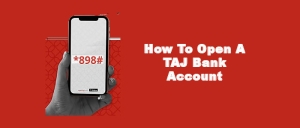
Banking is an essential component of modern financial life, providing services ranging from savings and loans to electronic transfers and investments. However, many banking customers in Nigeria often encounter a range of charges that are not always transparent or well-understood. These fees—commonly known as bank charges—can significantly affect the overall cost of banking services. Understanding these charges, the reasons behind them, and how to avoid unnecessary fees is crucial for consumers seeking to optimize their financial management. This article explores the various types of bank charges in Nigeria, highlights hidden fees, and provides practical tips on how to minimize or avoid them altogether.
Types of Bank Charges in Nigeria
1. Account Maintenance Fees
Most Nigerian banks charge a periodic fee for maintaining a current or savings account. This fee covers administrative costs associated with account management. While some banks waive this fee for certain account types or customers with high balances, others impose it as a standard charge.
2. ATM Fees
ATM charges are among the most common fees faced by bank customers. These include:
Withdrawal Fees: Fees charged for cash withdrawals at ATMs, especially when using ATMs outside the bank's network.
Balance Inquiry Fees: Some banks charge for checking your account balance via ATMs.
Card Maintenance Fees: Annual or monthly fees for maintaining debit or ATM cards.
3. Transfer and Electronic Payment Charges
Bank transfers, whether intra-bank or inter-bank, may attract fees. The Central Bank of Nigeria (CBN) regulates some of these charges, but additional fees may be levied by individual banks, especially for instant or urgent transfers.
4. Overdraft and Loan-Related Fees
Overdraft facilities attract interest charges and sometimes additional fees for maintenance or processing. Loan accounts may involve processing fees, commitment fees, and early repayment penalties.
5. Cheque Book and Statement Fees
Banks often charge for issuing cheque books or printing bank statements. These fees can accumulate over time, especially for frequent users.
6. Foreign Transaction Fees
For customers engaging in international transactions, banks impose charges such as currency conversion fees, withdrawal fees at foreign ATMs, and international transfer fees.
7. Miscellaneous Charges
Other fees include safe deposit box charges, late payment fees on loans, and penalties for bounced cheques.
Hidden Fees and Unseen Charges
While some fees are clearly disclosed, many are hidden or not immediately apparent. These hidden fees can catch customers off guard and lead to unexpected financial burdens.
1. Maintenance Fees for Dormant Accounts
Some banks levy charges on accounts that have not had activity over a period, often called “inactive account fees.” Customers may not be fully aware of these charges until their account is debited.
2. Transaction Limits and Additional Charges
Banks may impose limits on free transactions, and exceeding these limits can attract additional charges. For example, a certain number of free ATM withdrawals per month may be provided, after which fees apply.
3. Currency Conversion Markup
When making international purchases or withdrawals, banks often add a markup on the prevailing exchange rate, which can significantly increase the cost of foreign transactions.
4. Hidden Charges in Loan Agreements
Some loans come with hidden fees such as processing fees, service charges, or early repayment penalties that are not clearly disclosed upfront.
5. Charges for Failed Transactions
In cases where transactions fail due to insufficient funds or technical issues, banks may still impose penalties or fees.
How to Identify and Avoid Hidden Bank Charges
1. Read the Fine Print
Always review the terms and conditions of your bank account and related services. Pay special attention to the fee schedule and any clauses related to dormant accounts, transaction limits, or foreign transactions.
2. Choose the Right Account Type
Select an account that aligns with your banking habits. For example, if you make frequent international transactions, opt for an account with minimal foreign transaction fees.
3. Use Bank Services Wisely
Limit ATM withdrawals: Use your bank’s ATMs to avoid additional charges.
Avoid unnecessary transactions: Be mindful of transaction limits and plan your banking activities accordingly.
Maintain active accounts: Keep your account active to avoid dormancy fees.
4. Leverage Digital Banking
Many banks offer free or low-cost digital banking services, including transfers and bill payments. Utilizing these can reduce or eliminate several fees associated with traditional banking methods.
5. Negotiate with Your Bank
If you are a high-net-worth individual or a corporate client, you may be able to negotiate lower fees or customized banking packages.
6. Regularly Monitor Your Bank Statements
Review your bank statements regularly to identify any unexpected charges. Early detection allows you to raise concerns with your bank and seek explanation or refunds where appropriate.
Conclusion Bank charges in Nigeria encompass a broad spectrum of fees, some transparent and others hidden. While banking fees are often necessary for the provision of services, many charges can be avoided with proper awareness and strategic banking habits. Customers are encouraged to educate themselves about the fee structures of their banks, choose accounts suited to their needs, and actively monitor their transactions. By doing so, they can minimize unnecessary expenses, optimize their banking experience, and retain greater control over their financial resources.



 .jpg)



 Workplace Soft Skills That Make You Stand Out in the Business World
Workplace Soft Skills That Make You Stand Out in the Business World  Best Investment Opportunities To Grow Your Money
Best Investment Opportunities To Grow Your Money